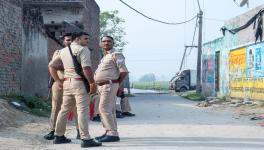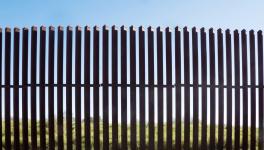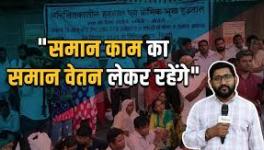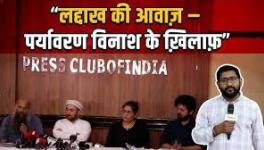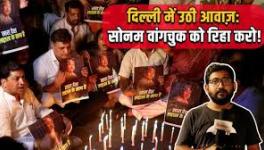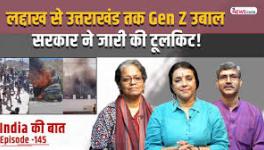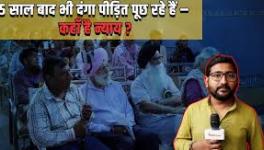Explained: Why the Draft Proposal of J&K Delimitation Commission is Controversial
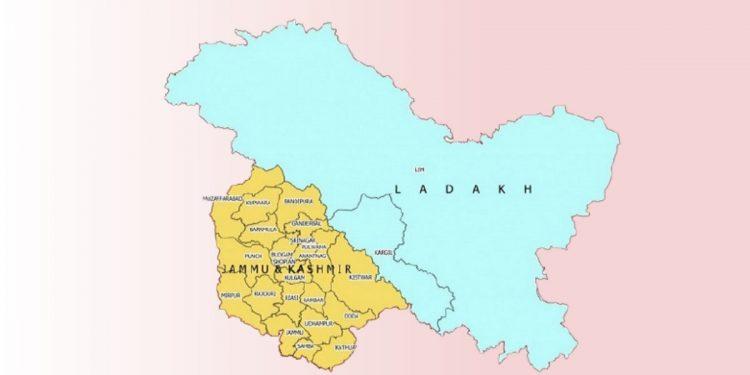
The first draft of the proposed allocation of seats in the new legislative assembly of the union territory of Jammu and Kashmir, presented earlier this week by the Delimitation Commission formed for this purpose by the Union Government in March last year, has generated heated debate in the last few days for allocating six more seats to Jammu, while only one more to Kashmir.
The Commission is headed by Justice (Retd.) Ranjana Prakash Desai, who served at the Supreme Court, and consists of the Chief Election Commissioner and the Jammu and Kashmir election commissioner as ex-officio members, as well as five Members of Parliament (MP) as associate members – three from the Jammu & Kashmir National Conference (NC), and two from the Bharatiya Janata Party (BJP).
The associate members have been given time till the end of this month to submit their suggestions on the draft proposal to the commission. After their suggestions are incorporated, the updated proposal will be placed in the public domain to invite feedback from the public. After considering this feedback, the final delimitation plan will be published in March next year.
The original deadline for the delimitation exercise was March this year, which was extended by one year due to COVID.
If the draft proposal goes through in its current form, the effective number of seats in the new legislative assembly for the union territory of Jammu and Kashmir will stand at 90 – with the Kashmir region having 47 seats, up from 46, and the Jammu region having 43 seats, up from 37. The legislative assembly of the erstwhile state of Jammu and Kashmir had 107 seats, out of which 24 were in Pakistan-occupied Kashmir and therefore unrepresented.
As per the proposal, one new seat will be added in the Doda, Kathua, Kishtwar, Rajouri, Samba and Udhampur districts in Jammu region, and the Kupwara district in the Kashmir Valley. The proposal also recommends reserving nine seats in the assembly for Scheduled Tribes. Seven seats were already reserved for Scheduled Castes in the erstwhile state assembly.
Kathua, Samba and Udhampur districts have over 85 per cent Hindu population each, while Doda, Kishtwar and Rajouri, the Muslim majority districts, have sizeable Hindu populations ranging between 34 and 45 per cent.
Delimitation was previously carried out in the erstwhile state in 1995, when it also included the present union territory of Ladakh. It had 12 districts at that time, which have now increased to 20.
The Commission has explained in its draft proposal that it categorized the 20 districts into three broad categories: those with predominantly hilly and difficult terrain, those with a mix of hillly and flat terrain, and those with predominantly flat terrain, giving a margin of 10 per cent of the average population per constituency (approximately 1,36,304) while allocating seats to the districts.
The proposal has come under fire, since as per the 2011 Census, Kashmir’s population is 15 lakh more than Jammu’s. Therefore, as per the proposal, Kashmir, which has 56.2 per cent of the union territory’s population, will have 52.2 per cent seats in the new assembly, while Jammu, which has 43.8 per cent of the population share, will have 47.8 per cent seats in the assembly.
As per Jammu and Kashmir’s former law secretary Muhammad Ashraf Mir, going by the draft proposal, Jammu gets an assembly seat for every 1,25,082 people, while in Kashmir, there is an average of 1,45,563 people per assembly seat.
All major regional political parties in Jammu and Kashmir, as well as prominent Kashmiri civil society members, have criticized the proposal for ignoring the census in its seat allocation, apparently disenfranchising the population of Kashmir, and giving an electoral advantage to the Hindu-majority Jammu region in the Muslim-majority union territory, which stands to benefit the Hindu right-wing BJP.
Another point of contention raised by NC MP Hasnain Masoodi, who is one of the associate members of the Commission, is that the delimitation exercise is being carried out as per the Jammu and Kashmir Reorganisation Act, 2019, whose constitutionality was challenged before the Supreme Court in 2019, and the matter is currently sub judice.
Get the latest reports & analysis with people's perspective on Protests, movements & deep analytical videos, discussions of the current affairs in your Telegram app. Subscribe to NewsClick's Telegram channel & get Real-Time updates on stories, as they get published on our website.














